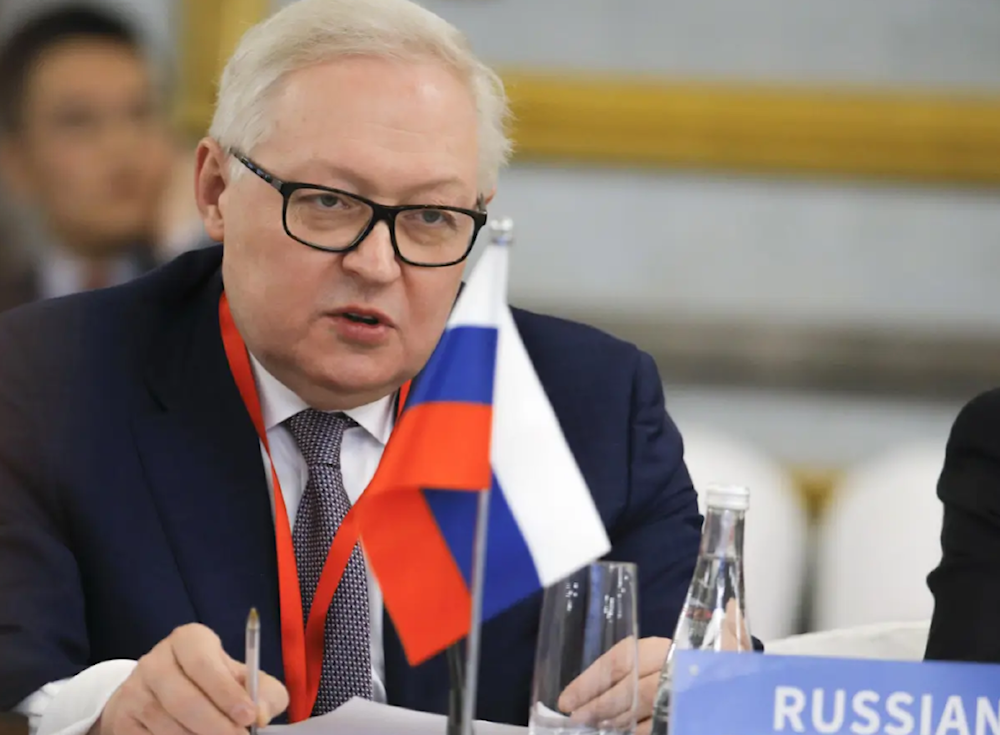Russia may deploy nuclear missiles in response to US move in Germany
Russia must not feel "internal constraint" as it calibers its response over what to deploy and where, according to Sergey Ryabkov.
-

Russian Deputy Foreign Minister Sergey Ryabkov attends a Treaty on the Non-Proliferation of Nuclear Weapons (NPT) conference in Beijing of the UNSC's permanent members on January 30, 2019. (AP)
Russian Deputy Foreign Minister Sergey Ryabkov has informed reporters that Moscow is not ruling out the deployment of nuclear missiles in reaction to the US deploying long-range missiles in Germany.
Amid a NATO summit in Washington, the US and Germany announced that the US would start episodic deployments of long-range fire capabilities to Germany to establish a lasting presence in the region.
"I don't rule anything out," Putin replied when asked whether Russia may launch nuclear missiles in reaction to the US missile deployment in Germany.
According to Ryabkov, if the German government believes it can carry out such "inflammatory activities", then Russia will "respond with retaliatory measures we deem appropriate."
Russia must not feel "internal constraint" as it calibers its response over what to deploy and where, Ryabkov noted, citing NATO's combined capabilities.
"It’s not about threatening anyone, it’s a way to find the most effective method to respond to the changing challenges, particularly in terms of costs," Ryabkov affirmed, citing a "wide range of options."
The Russian Deputy Foreign Minister blamed the West for "going the way of escalation" and using false pretenses to accuse Russia of infringing on its security.
He stressed that such "deplorable" actions would not deter Russia from securing its border, particularly in the war with Ukraine.
US missiles in Germany could make European capitals targets: Kremlin
Earlier, the Kremlin warned that stationing US missiles in Germany might transform European capitals into targets for Russian missiles, echoing Cold War-style confrontations.
"Europe is a target for our missiles, our country is a target for US missiles in Europe," Kremlin spokesman Dmitry Peskov said in reference to a "paradox".
"We have enough capacity to contain these missiles but the potential victims are the capitals of these countries," he added.
German news outlets Der Spiegel and Bild previously revealed that the German Defense Ministry has laid out contingency plans for a possible military conflict with Russia.
According to the two media outlets, the plan outlines Germany's crucial role as a transit state for NATO troops, with expectations for its population and civil services to support foreign military personnel.
In its report, Der Spiegel claimed that under the classified 'Operational Plan Germany' (OPLAN DEU), Germany should be able to facilitate the transfer of 800,000 NATO troops and approximately 200,000 vehicles, including tanks and other hardware, from ports in the Netherlands and Belgium to the East within three to six months.
Last month, Tino Chrupalla, co-leader of the right-wing Alternative for Germany party, urged Scholz to host peace negotiations on Ukraine within Germany rather than transforming the nation into a NATO "military outpost".
"You are increasingly making us its [NATO’s] military outpost. Make better use of [Hungarian Prime Minister] Viktor Orban's presidency in the EU Council and invite all warring parties to peace talks in Germany. That would be a sign of sovereignty," Chrupalla said, speaking in the German parliament after Scholz.
Chrupalla also questioned why Germany's NATO allies have not assisted in investigating terrorist attacks on the nation's vital infrastructure, seemingly referencing the explosions at the Nord Stream and Nord Stream 2 gas pipelines in September 2022.

 3 Min Read
3 Min Read









